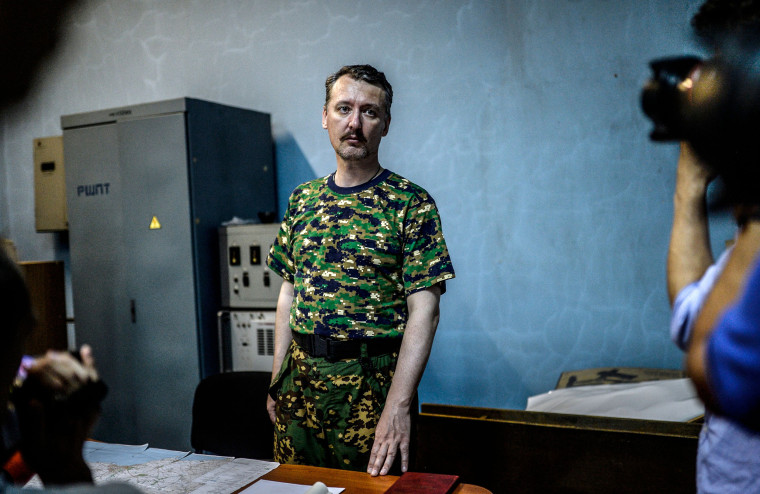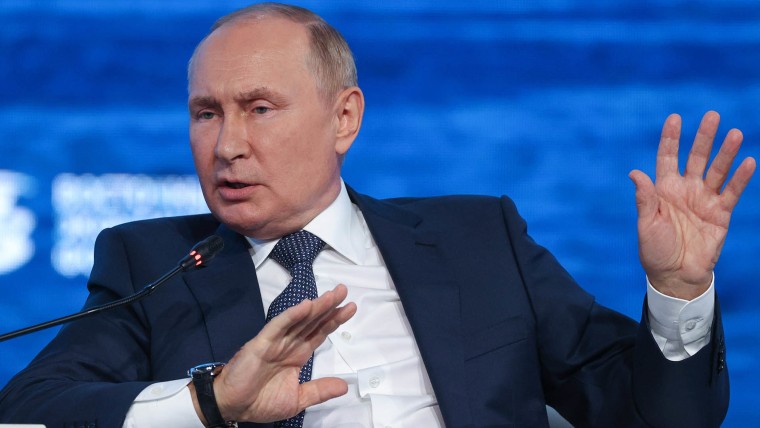LONDON — Russian President Vladimir Putin has a problem.
For more than two decades now, Putin’s expanding grip on power has been predicated on his portrayed strength and justified as essential to Russia’s existence. Over time, as the political opposition and the independent media were gradually whittled away, Kremlin propagandists fostered a sense of inevitability underpinning his continued stewardship.
“Russian society, just as the Russian army, is decaying and falling apart because of corruption.”
RUSSIAN SOLIDER PAVEL FILATYEV said
From the start, Putin’s invasion of Ukraine has been presented to the Russian public — and the country’s political elite — in very similar terms: This war was necessary to secure Russia’s future existence, it was well-planned and executed, and it will be won. And with near-total control over the information space at home, there has been very little chance for these narratives to be challenged.
All of that has changed over the past week.
Ukraine has conducted twin counter-offensives to retake territories occupied by Russia — and achieved success that appeared to stun outside observers as well as the Kremlin.
The scale of the Russian military’s and political leadership’s setbacks in Ukraine have become too vast for even state media and pro-war activists to ignore.
“The special military operation has completely failed,” Igor Girkin, who gained notoriety as one of the main leaders of Russia’s initial efforts in eastern Ukraine back in 2014, said in a video this week. “Since March, we have had a full-fledged war. But until now, Russian authorities, the defense ministry, and general staff have behaved as if there’s no war.”
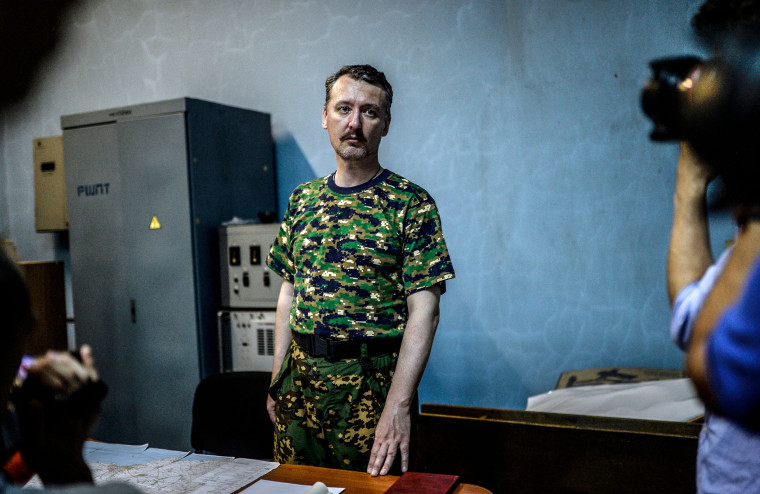
Last week, he declared the war “already lost,” and warned his audience of nearly half a million viewers that the war would continue until Russia’s total defeat.
Girkin is himself a controversial figure among the marginal but increasingly vocal group of right-wing pro-war bloggers and activists who have thrived on the Telegram messaging service since the start of the war. Their views have traditionally run parallel to official state media messaging, but are not firmly under the Kremlin’s control. With Russian forces on the retreat, more and more they are accusing the leadership of betraying the troops.
“The Kremlin is worried about this panic sentiment,” said Tatiana Stanovaya, a nonresident scholar at the Carnegie Endowment for International Peace. “The pro-war activists are seen as allies, they are part of the broad pro-Putin consensus in Russia, the disagreement is just about tactics. So, the Kremlin actually has limited means to deal with this camp. They can’t turn against them and suppress them the same way they did the liberal opposition.”
Even soldiers who have fought in what the Kremlin insists on calling its “special operation” are returning home, refusing to go back to the front, and challenging the official narrative surrounding the war. As Ukraine retakes territory, videos are appearing online appearing to show massive amounts of equipment abandoned by retreating Russian soldiers.
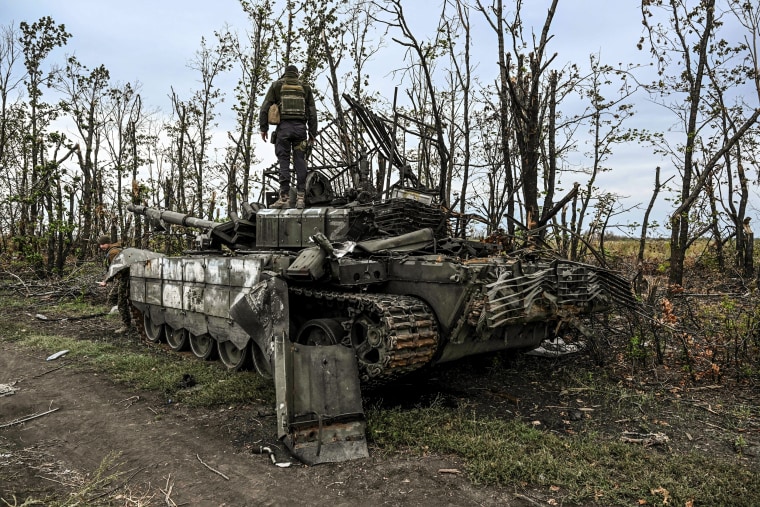
While the television has told the public that they’ve been fighting a good, clean war, soldiers are telling their friends, families and fellow citizens stories of a chaotic, unclear and troubled operation.
“Russian society, just as the Russian army, is decaying and falling apart because of corruption,” Pavel Filatyev, a Russian soldier who has published a scathing memoir of the first two months of the war, told NBC News. “So the Russian army often is not acting carefully, they are acting unprofessionally, and a lot of mistakes are being made.”
He fled Russia last month after publishing his 141-page account of the war on the Russian social media network VKontakte. NBC News interviewed him in Paris, where he is now seeking asylum. He said that he was stationed in Crimea on exercises before the start of the war Feb. 24, and his unit was sent into the southern Kherson region without sufficient supplies and ammunition.
“Everyone steals as much as they can at each and every level,” Filatyev said when asked about the reason for equipment shortages. “On paper, everything is amazing. Our soldiers should be well-fed and happy. But in practice, somewhere along the line the extra food was stolen and sold, same with boots and even bulletproof vests.”
His account of the war paints a picture of a military that was left in the dark about Putin’s intentions before the war began, and under-equipped and mismanaged after troops were ordered into Ukraine. Ultimately, according to Filatyev, the blame falls solely on Putin.
“If you go to Avito and type in bulletproof vest, where do you think those are coming from?” he said, referring to a Craigslist-style service in Russia. “Soldiers are stealing and selling them. Obviously, higher ranked people can sell more, such as ammunition. And at the top, it’s obvious that corruption is through the roof … because Putin just can’t seem to effectively govern the nation.”
Accounts such as Filatyev’s cast doubt on the Kremlin’s ability to do one thing that many in Russia now seem to agree is necessary to win the war: mobilization of some form.
Over the past few days, this sentiment has started spilling over from marginal radical Telegram channels into the official sanctioned discourse on Russian television. One noteworthy incident took place on a Sunday talk show in which guests openly criticized the war and its goals, with some panelists claiming that Russia will now lose the war unless Putin calls for a full mobilization of the Russian military, which is made up of a mix of paid soldiers and conscripts.
But the Kremlin understands this would be an unpopular decision among the pacified and apathetic Russian public.
It said this week that mobilization was not yet in the cards and openly warned those who are seen as patriotic dissenters from crossing the line.
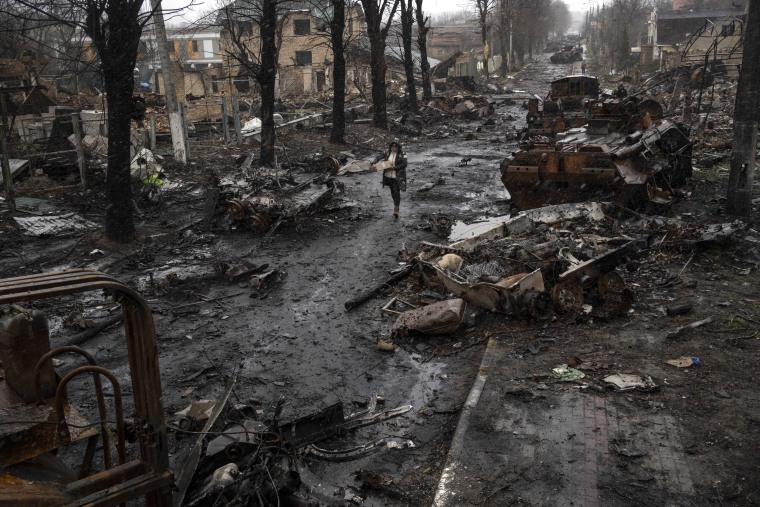
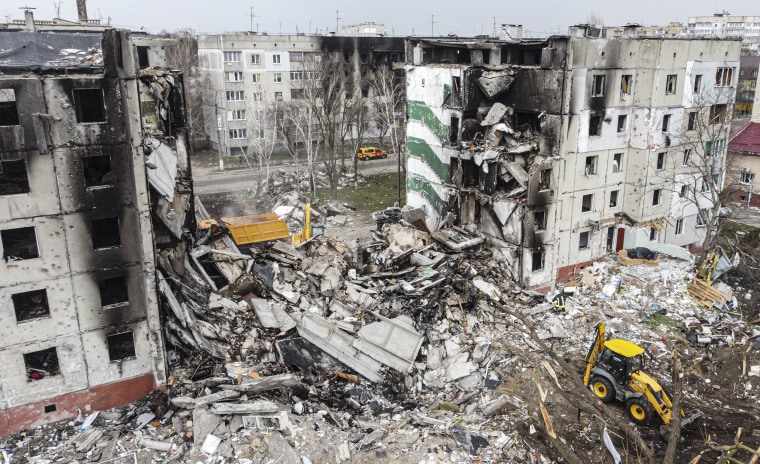
“Critical points of view can be considered pluralism so long as they remain within the bounds of the law,” Kremlin spokesman Dmitry Peskov said Tuesday in response to questions about the growing public criticism of the way the war is going. “But the line is very, very thin, one must be careful here.”
‘A private mercenary group that Western military analysts say has been fighting in Ukraine on behalf of the Kremlin seems to be taking a more central role, even appearing to recruit prisoners to join the war in exchange for going free. NBC News has contacted the Kremlin for comment on the issue.
The head of the Chechen Republic, Ramzan Kadyrov, meanwhile called for regional governors across the country to begin a kind of regional mobilization — an apparent effort to spare the Kremlin the political trouble of a large and loud general mobilization.
Radical right-wing bloggers calling for Putin to take the gloves off in Ukraine are not a direct threat to the regime, Stanovaya said. But their presence in the discourse sends a message to the political elite that backs Putin, undermining their confidence in the leader as the only figure capable of providing stability — the currency of post-Soviet Russian politics, she says.
“Putin’s biggest threat is himself,” she said. “The problem is his leadership. The Russian elite is used to seeing Putin as a strong man, someone who deals with challenges and always knows where he’s taking the country. Now he appears hesitant, he is not convincing at all and he is unclear about Russia’s goals and plans,” she added. “How is Russia going to win this war?”
It’s a question more in Moscow are asking.

